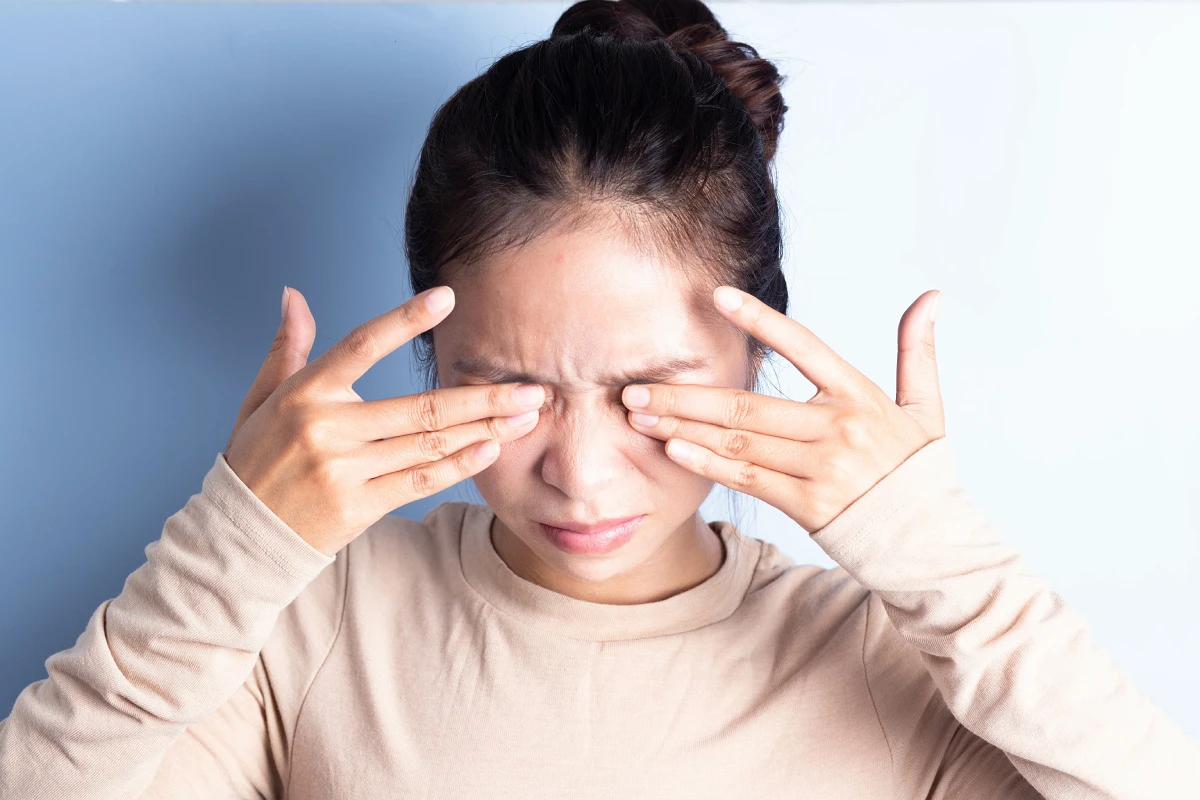Have you noticed your eyes are itching more than usual? While everyone experiences itchy eyes at some point, it can be a sign of a more serious issue like dry eye syndrome. Dry eye syndrome is a common condition that occurs when your tear glands don’t produce enough tears or when the tears evaporate too quickly.
Keep reading to learn more about dry eye syndrome, its symptoms, causes, and how to find relief with dry eye treatment in Plymouth.
Symptoms of dry eye syndrome
Dry eye syndrome can cause a variety of uncomfortable symptoms, including:
- Watery eyes (reflex tearing caused by the body overproducing poor-quality tears)
- Itching
- Redness
- Irritation
- A feeling like something is stuck in your eye
- Blurry vision
- Difficulty wearing contact lenses
- Trouble staring at screens for long periods
Untreated dry eye can damage your cornea and lead to vision loss in severe cases. If your symptoms persist or get worse, it’s important to schedule an eye exam with your optometrist to make sure you get the right treatment.
Causes of dry eye syndrome
Many different factors can contribute to dry eye syndrome, including:
- Aging
- Certain medications
- Medical conditions such as diabetes or rheumatoid arthritis
- Environmental factors like dry air, wind, smoke, or air conditioning
- Hormonal changes in women caused by pregnancy, menopause, or birth control
How to treat dry eye
Fortunately, there are many ways to relieve dry eye symptoms and keep your eyes healthy. The most common dry eye treatment is artificial tears. These are eye drops that people can buy over the counter without a prescription.
Other treatment options include warm compresses and prescription eye drops. You can also improve dry eye symptoms with lifestyle changes such as:
- Using a humidifier in dry environments
- Staying well-hydrated
- Taking regular breaks from screens
If you’re taking a medication that causes dry eye as a side effect, your doctor may suggest changing to a different medication. Adding more fish, nuts, and leafy vegetables to your diet (foods high in omega-3s) may also help improve your dry eye symptoms and overall eye health.
Get to the bottom of what’s causing your dry eyes
If you think you might have dry eye syndrome, our eye doctors can help figure out what’s causing your symptoms and recommend the best treatment for you. We may suggest a thorough cleaning of the eyelids and lashes to remove debris and bacteria that could be causing dry eye or light therapy to improve tear production.
Schedule an appointment today to learn more about our treatment options. With the right treatment and preventive measures, you can relieve discomfort and protect your eyes from further damage.





